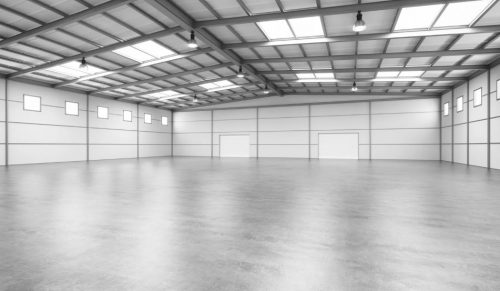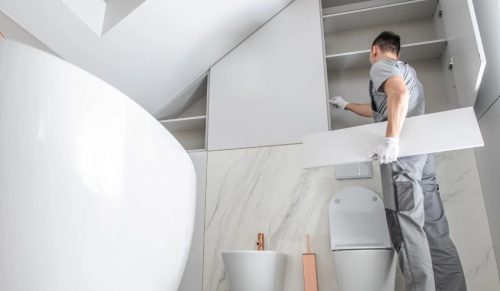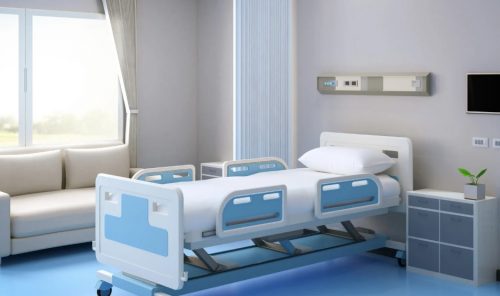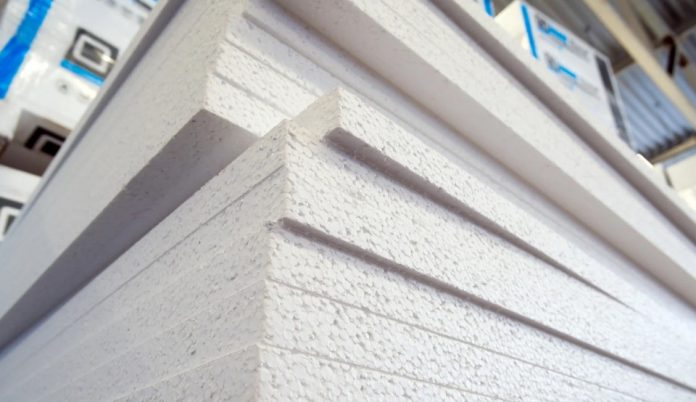When it comes to outfitting a business space—whether it’s an office, café, warehouse or showroom—every design choice must strike a balance between cost, durability and appearance. One often overlooked material that ticks all those boxes? Plastic panels.
Lightweight, versatile and surprisingly stylish, they can be used across a range of industries to improve efficiency, hygiene, and aesthetics.
Let’s explore where plastic panels can make the biggest impact in your business environment and why they’re becoming a favourite among forward-thinking designers and facility managers.
Where to Use Plastic Panels in Business?
1. Hygienic Wall Cladding in Kitchens and Food Prep Areas
 Food safety regulations are strict, and rightly so. Kitchens, commercial food prep zones, and even butcher shops must maintain high levels of hygiene and that starts with the walls.
Food safety regulations are strict, and rightly so. Kitchens, commercial food prep zones, and even butcher shops must maintain high levels of hygiene and that starts with the walls.
Plastic panels, particularly PVC wall cladding, are ideal for these spaces because they’re non-porous, easy to clean, and resistant to mould and bacteria. Unlike tiles, they have no grout lines, which means fewer areas for grime and germs to build up.
They’re also quick to install, allowing for minimal business disruption. Whether you run a restaurant or a large-scale catering operation, installing these panels is a cost-effective way to stay compliant with health codes while creating a slick, professional-looking space.
2. Retail Displays and Fitting Rooms
Modern retail is about more than just selling it’s about experience. Plastic panels can elevate store displays and create a clean, cohesive look in fitting rooms.
High-gloss acrylic panels, for instance, offer a premium appearance without the premium cost. Available in a wide range of colours and finishes, they can be tailored to fit your brand’s aesthetic.
They’re also shatterproof, making them safer than glass in high-traffic areas. Whether used as decorative wall features, protective barriers, or even furniture surfacing, these panels offer a sleek way to create Instagram-worthy spaces.
3. Warehouse and Factory Environments
 Durability is crucial in industrial settings. Factories and warehouses often contend with moisture, dust, chemicals, and heavy equipment all of which can take a toll on traditional building materials. That’s where plastic panels come into their own.
Durability is crucial in industrial settings. Factories and warehouses often contend with moisture, dust, chemicals, and heavy equipment all of which can take a toll on traditional building materials. That’s where plastic panels come into their own.
Corrugated plastic sheeting is strong, impact-resistant, and can be used to line walls, ceilings, or partitions in these environments.
It’s also lightweight, meaning it’s easier to handle and install than metal or wood alternatives. Plus, it’s resistant to corrosion making it ideal for environments where humidity or chemical exposure is common.
In the middle of the blog, it’s worth emphasising that plastic panels are not just a practical choice—they’re also adaptable to the changing needs of your business.
As workspaces evolve, you can reconfigure or repurpose them without major structural work.
4. Office Partitions and Meeting Pods
In open-plan offices, privacy can be hard to come by. Enter plastic panels, which can be used to create attractive, semi-private zones for meetings or quiet work.
Frosted acrylic panels allow for privacy without sacrificing natural light, while coloured or printed versions can add visual interest or branding.
Because they’re so easy to clean and resistant to scuffs, they’re a long-term solution that still feels modern. You can even opt for recycled or eco-friendly plastic panels if sustainability is a core value of your business.
5. Bathrooms and Changing Facilities
 These areas need materials that can handle constant moisture without warping, cracking or degrading. Plastic panels especially uPVC wall panels are a no-brainer here. They’re waterproof, stain-resistant and extremely low-maintenance.
These areas need materials that can handle constant moisture without warping, cracking or degrading. Plastic panels especially uPVC wall panels are a no-brainer here. They’re waterproof, stain-resistant and extremely low-maintenance.
They’re also faster and cheaper to install than tiling, and many versions offer tongue-and-groove joints for a seamless finish. Whether you’re renovating public washrooms, changing rooms or shower blocks, plastic panels offer both practicality and polish.
6. Signage and Branding
Don’t underestimate the power of a good first impression. Plastic panels can be used for external signage, interior branding displays, or illuminated signs.
Lightweight and easy to cut, they can be fabricated into custom shapes or layered for 3D effects. Durable enough for outdoor use, they also resist fading and weather damage, meaning your brand looks sharp for longer.
Need a temporary display for an event or a permanent lobby feature? Plastic signage panels offer the flexibility and finish to suit either case.
7. Healthcare and Cleanroom Applications
 Hospitals, clinics, labs and cleanrooms require materials that support rigorous hygiene standards. Antimicrobial plastic panels are now available, specially engineered to inhibit the growth of bacteria and fungi. They’re also resistant to staining and can withstand frequent cleaning with harsh disinfectants.
Hospitals, clinics, labs and cleanrooms require materials that support rigorous hygiene standards. Antimicrobial plastic panels are now available, specially engineered to inhibit the growth of bacteria and fungi. They’re also resistant to staining and can withstand frequent cleaning with harsh disinfectants.
This makes them ideal not only for patient areas but also for laboratories, pharmaceutical production sites, and even veterinary clinics. In spaces where cleanliness is paramount, plastic panels offer peace of mind as well as performance.
Final Thoughts: Adaptability Meets Affordability
Plastic panels are having a quiet renaissance. No longer just the realm of utilitarian spaces, they’re now being recognised for their design potential as much as their durability.
Whether you’re upgrading a customer-facing environment or overhauling a back-of-house facility, they offer an efficient and attractive solution that meets modern business demands.
From hygiene to branding, noise reduction to privacy, plastic panels are a small detail that can make a massive difference. Invest wisely—and your walls (and your budget) will thank you.


































